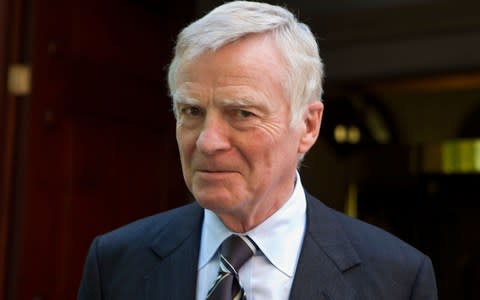Privacy vs Freedom of Expression: How the law has developed

The delicate balance between a person's right to privacy and someone else's right to freedom of expression were set at odds when they were enshrined in the Human Rights Act, brought in by Tony Blair's Labour Government in 1998.
The legislation, which came into force in October 2000, was introduced in order to incorporate the European Convention on Human Rights into UK law.
Under Article 8, the Human Rights Act states that everyone has the right to respect for their private and family life, their home and their correspondence.
But the law also guarantees everyone's right to freedom of expression, which allows them to hold opinions and receive and impart information and ideas without interference.
Ever since the law was introduced, judges have been asked to rule on cases where the two competing principles have been at odds with one another.
The judgments in each of these legal challenges have helped form case law which has slowly tipped the balance ever more in favour of a person's right to privacy against the competing interests of a free press.
One of the first cases that came before the UK courts in this issue involved the former Manchester City and Blackburn Rovers footballer Garry Flitcroft.

After being accused of having an extramarital affair, Flitcroft took out a High Court injunction, banning the media from revealing the details of the relationship.
Following a long legal battle in 2002, Flitcroft was named by the newspapers, after three Appeal court judges said the original ruling had been an "unjustified interference with the freedom of the press".
Around the same time a contrasting result was reached in the case of supermodel, Naomi Campbell, who claimed the Daily Mirror had breached her privacy when it published photographs of her leaving a Narcotics Anonymous meeting.
The judge said details of her therapy were sensitive personal data and publishing then had indeed been an unwarranted intrusion into her right to privacy.

In 2006, the Prince of Wales won a case against the Mail on Sunday which had published extracts of a dispatch he had written on a flight back from Hong Kong.
He successfully gained an injunction against the newspaper, based on a breach of privacy, and the newspaper was prevented from publishing any other extracts.
Two years later, one of the most significant privacy versus freedom of expression cases took place when the formula one boss Max Mosley successfully sued the News of the World for publishing details of a sadomasochistic sex orgy he had indulged in.
The Sunday tabloid had argued that there was a public interest in the story because the orgy had a Nazi theme and his father, Oswald Mosley had been the leader of the British Union of Fascists in the 1930s.
But the judge ruled in Moseley's favour after ruling there was no evidence of a Nazi theme.

Mr Justice Eady said that Moseley had a "reasonable expectation of privacy in relation to his sexual activities, no matter how "unconventional".
He was awarded £60,000 damages and the newspaper was ordered to pay costs.
The editor at the time, Colin Myler said: "Unfortunately, our press is less free today after another judgment based on privacy laws emanating from Europe."
Despite the fact that the Human Rights Act guarantees rights across Europe, it is not part of EU law and therefore will continue to apply in Britain after Brexit.
Last night leading legal experts warned that the latest case risked tipping the balance in favour of privacy over freedom of expression and could have far reaching implications for a free press.
Leading media lawyer, Heather Rogers QC, said: "This judgment could have a significant impact on media reporting.
“Privacy rights have been developing since the Human Rights Act - and this issue has been bubbling under the surface for a while – but it has now emerged as a further push towards shutting things out of the public domain. It is an advance in privacy rights and it means more privacy and less openness."
Dr Paul Wragg, Associate Professor of Media Law at the University of Leeds, added: “This decision could have a chilling effect on the way the press operate which does not serve the public interest.”

 Yahoo News
Yahoo News 
